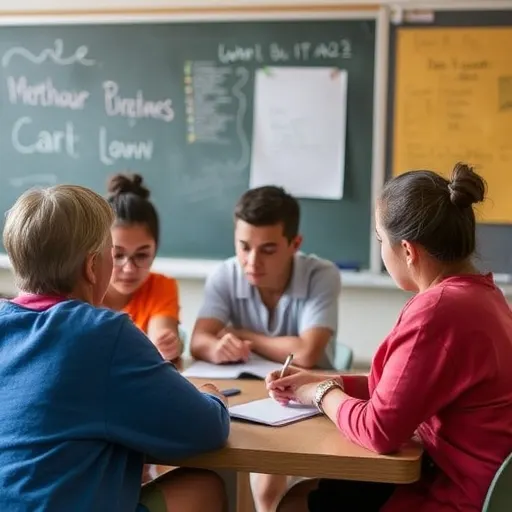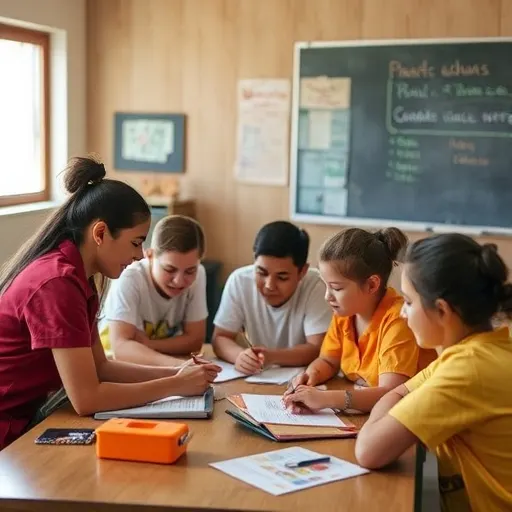Understanding Informal Education: Learning Beyond the Classroom
Education doesn’t just take place within the walls of a classroom. In fact, much of what we learn happens outside of formal education systems through informal education. This type of learning is spontaneous, unstructured, and often occurs in daily interactions, experiences, and activities. It plays a significant role in shaping individuals and providing lifelong learning opportunities, and its impact extends far beyond traditional schooling.
In this blog, we’ll explore what informal education is, how it differs from formal education, its importance, and how it shapes our lives. We’ll also examine the ways informal education can complement formal education and enhance personal development.

What Is Informal Education?
Informal education refers to learning that takes place outside of formal institutional settings like schools, colleges, and universities. It is unstructured and doesn’t follow a specific curriculum or set of learning outcomes. Instead, informal education occurs naturally through life experiences, interactions, and personal engagement. This type of learning can happen at any time, in any place, and is often driven by curiosity or necessity.
Unlike formal education, which is typically organized and follows a schedule, informal education tends to be self-directed. It is more fluid, adaptive, and personalized, allowing individuals to learn at their own pace based on their interests, needs, and experiences.
Key Characteristics of Informal Education:
- Unstructured and Spontaneous: Informal education happens organically as people encounter new information or engage in new activities. It doesn’t follow a prescribed syllabus or rigid framework like formal education does.
- Lifelong Learning: Unlike formal education, which is typically time-bound and age-specific, informal education is a lifelong process. It can begin at an early age and continue throughout adulthood, shaping the way we learn and grow.
- Personalized: In informal education, the learner takes the lead. They decide what, when, and how to learn based on personal interests or practical needs. There is no formal grading system or evaluation process; learning is driven by personal goals.
- Non-Certified: Informal education doesn’t generally offer formal certifications or degrees. Instead, it focuses on gaining knowledge and skills that are immediately applicable in daily life, personal development, or the workplace.
- Contextual and Relational: Informal education often takes place through relationships and interactions with others, including family members, friends, mentors, colleagues, and peers. It can happen through storytelling, shared experiences, or practical work.
Why Is Informal Education Important?
Informal education is a crucial aspect of human development and provides many benefits that complement formal learning. Here are some of the key reasons why informal education matters:
1. Learning Through Life Experiences
One of the most important features of informal education is that it is embedded in everyday experiences. From cooking meals and managing finances to handling social situations and solving practical problems, informal learning teaches us critical life skills. These skills are often not explicitly covered in formal education but are essential for personal and professional success.
For example, learning to navigate cultural differences in the workplace or developing leadership abilities through volunteer work are examples of informal learning that enhance our social and professional capabilities.
2. Self-Directed and Flexible Learning
In informal education, individuals take responsibility for their own learning. This self-directed approach fosters independence and critical thinking, allowing learners to focus on areas of interest or practical need. It is especially valuable for individuals who may not have access to traditional formal education or for those seeking to explore new subjects outside the classroom.
Whether it’s learning a new language through immersion, picking up coding skills through online tutorials, or improving cooking techniques by experimenting at home, informal education provides flexibility and autonomy.
3. Fostering Creativity and Innovation
Informal education encourages creativity, experimentation, and innovation. Because it is not bound by a structured curriculum, learners are free to explore new ideas, test hypotheses, and approach challenges from multiple perspectives. This kind of open-ended learning nurtures curiosity and fosters problem-solving skills, which are vital for innovation in any field.
Many groundbreaking inventions and discoveries were born from individuals exploring ideas outside of the constraints of formal educational systems. For example, many successful entrepreneurs have honed their business acumen and innovative thinking through real-world experiences and self-directed learning.
4. Building Emotional and Social Intelligence
Informal education plays a key role in the development of social and emotional skills. Through interactions with family members, friends, and community members, we learn how to communicate effectively, navigate social dynamics, and manage emotions. These skills are essential for building relationships, resolving conflicts, and functioning well in society.
In addition, informal education helps individuals build self-awareness, resilience, and empathy—qualities that are crucial for personal well-being and effective interpersonal relationships.
5. Enhancing Cultural Awareness
Informal education often exposes individuals to diverse cultures, traditions, and worldviews. Through travel, cultural exchanges, social media, or simply interacting with people from different backgrounds, learners gain a broader understanding of the world around them. This kind of education promotes tolerance, open-mindedness, and global awareness—qualities that are increasingly important in our interconnected world.
Learning about global issues, languages, and cultures through informal experiences allows individuals to be more culturally competent and aware, which is essential in today’s diverse, globalized society.
How Informal Education Complements Formal Education
While formal education provides essential academic knowledge and credentials, informal education enhances that learning by offering practical, real-world skills and personal growth. The two types of education are complementary, with informal learning often filling in the gaps that formal education cannot address.
1. Bridging the Gap Between Theory and Practice
Formal education often focuses on theoretical knowledge and foundational concepts, but it may not always provide practical application. Informal education helps bridge this gap by allowing students to apply what they’ve learned in real-world settings. Whether through internships, volunteering, hobbies, or informal job experiences, students gain hands-on experience that enriches their formal education.
2. Promoting Lifelong Learning
In today’s rapidly changing world, learning does not end after graduation. The skills needed for success in many fields are constantly evolving, and individuals need to continue learning throughout their lives. Informal education supports this lifelong learning by offering a platform for individuals to acquire new skills, adapt to new technologies, or deepen their understanding of specific topics over time.
3. Filling Gaps in Knowledge
Informal education also provides a means of addressing gaps in formal education. For example, if a student struggles with a particular subject in school, they may seek additional learning resources outside the classroom. This could involve watching educational videos, reading books, or seeking guidance from a mentor—all of which are forms of informal education that can supplement formal learning.
Examples of Informal Education
Informal education can take many forms, depending on an individual’s interests, goals, and resources. Here are some common examples of informal education:
- Self-Directed Learning: Reading books, watching instructional videos, attending webinars, or exploring online platforms like YouTube or Coursera to learn new topics.
- Mentorship and Peer Learning: Gaining knowledge and advice from mentors, colleagues, or friends who share their expertise or experiences.
- Workplace Learning: Learning new skills or acquiring job-specific knowledge through experience in the workplace, often outside the scope of formal training programs.
- Community Engagement: Participating in community activities such as volunteering, organizing events, or engaging in social service projects that provide learning opportunities.
- Hobbies and Interests: Engaging in personal hobbies such as cooking, photography, gardening, or sports, where individuals learn through practice and self-exploration.
Challenges of Informal Education
While informal education offers many benefits, it also has its limitations:
- Lack of Structure: Without a clear curriculum or set learning goals, informal education can be inconsistent and sometimes ineffective in reaching specific educational outcomes.
- Varied Quality: Since informal education is largely self-directed, the quality of learning can vary greatly depending on the individual’s resources, motivation, and access to learning tools.
- Lack of Certification: Informal education doesn’t usually offer formal qualifications, which can make it harder for individuals to prove their skills or knowledge to potential employers.
Conclusion
Informal education is an invaluable component of the learning process, providing opportunities for personal growth, skill development, and lifelong learning. While formal education is essential for building foundational knowledge and career credentials, informal education complements it by fostering creativity, critical thinking, social intelligence, and practical experience.
Whether through life experiences, self-directed learning, or community interactions, informal education is an ongoing journey that helps individuals adapt to the complexities of modern life. By embracing both formal and informal education, we can develop a well-rounded skill set, cultivate curiosity, and prepare ourselves for success in an ever-changing world.
